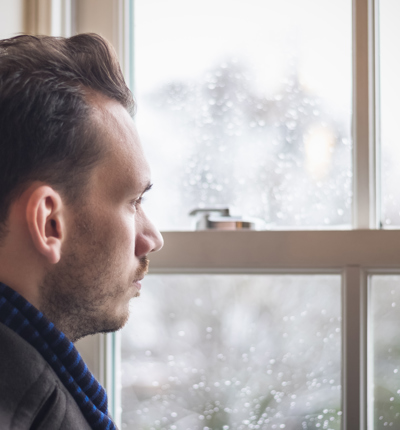
Men's Health Month - Underdiagnosis and under treatment of men's mental health
In the third in a series of blogs for Men's Health Awareness Month, Nandi Jordan looks at the underdiagnosis and under treatment of men's mental health.
Posted on 16 November 2020
In 2020 perhaps we are more aware of mental health problems than ever before, but still mental illness remains a huge issue for individuals and wider society. Sadly, the effect of mental health problems is only likely to worsen in the near future due to the impact on families, livelihoods, and prospects caused by COVID-19.
This Men’s Health Month, I examine how mental health problems specifically impact on men, and I argue that an understanding of this issue is important for clinical negligence lawyers to effectively represent their clients. Gregory Warner a leading GP Consultant, will be giving some advice about what to do if you have concerns.
The statistics on male mental health problems indicate that men suffer as much mental distress and mental ill health as women, but that men find it harder to access help.
A survey conducted by YouGov for the Mental Health Foundation (2016) found that:
- While 19% of women had not sought help for the last mental health problem they suffered, the figure for men was 28%;
- While a third of women who disclosed a mental health problem to a friend or loved one did so within a month, only a quarter of men did so;
- 25% of women waited more than two years or have never disclosed a mental health problem to a friend or family member, while for men the figure was 35%;
- Men are disproportionately affected by suicide: 76% of suicides are by men and suicide is the biggest cause of death for men under 35;
- Men disproportionately die from overdose: 2/3 of overdoses; and
- Men make up 73% of missing people;
Given these statistics there is debate on whether mental health problems in men are generally under diagnosed in the UK and therefore men are not receiving the help and treatment they need.
The statistics on suicide alone indicate that there is a real problem for men accessing help when they are in mental distress. It is likely that this problem is having wider health implications for men, both in terms of mental ill health, the knock-on physical health problems caused by chronic mental ill health and also alcohol and drug misuse. Like any area of ill health, mental health can improve with the right treatment, but delays in accessing that treatment can impact both individual’s mental and physical wellbeing.
As a clinical negligence lawyer, I represent clients who have tragically lost loved ones due to injury or suicide when they have been detained under the Mental Health Act or been under psychiatric care. Clients also come for advice when they have received inappropriate or incorrect treatment from mental health services, when there have been misdiagnosed, or when there have been failures or delays referring them for required treatment.
In my experience many victims of medical accidents go on to develop mental health problems as a result of their experiences.
Clinical negligence lawyers need to be aware of the particular issues that men face in obtaining help when they are suffering from mental ill health. While we hold medical practitioners to account on an individual basis with claims of clinical negligence, it can only assist us to represent our client’s effectively if we understand the context in which negligence occurs and if we have an understanding of some of the difficulties men may have experience accessing help and treatment.
Gregory Warner, Consultant GP Says:
“It cannot be stressed enough the importance of seeking help when you are very low. Thoughts of suicide can sometimes simply be a reflection of low mood but there is help available if you are experiencing such thoughts.
“Suicide is a catastrophic event for those left behind and, whatever the cause, this is a preventable event in many cases.
“If you feel like this, just tell somebody.”
If you are suffering with your mental health, please contact your GP or contact the Samaritans who you can speak to for free 24/7 on 116 123.
It cannot be stressed enough the importance of seeking help when you are very low. Thoughts of suicide can sometimes simply be a reflection of low mood but there is help available if you are experiencing such thoughts.”
Gregory Warner, Consultant GP Says:


